#serialisation
Text
Reading Like A Victorian
A while ago, I discovered the website 'Reading Like a Victorian', a digital humanities project from The Ohio State University and collaborators.
Since tumblr's been going through a bit of a serial-literature revival, I thought I would share...
Here are some extracts from the website's 'About Us':
RLV is an interactive timeline of the Victorian period. It focuses on serialized novels [...] and adds volume-format publications for context.
When we read Victorian novels today, we do not read them in the form in which they originally came out. Most Victorian novels appeared either as “triple deckers,” three volumes released at one time, or as serials published monthly or weekly in periodicals or in pamphlet form. Serialized novels’ regularly timed, intermittent appearance made for a reading experience resembling what we do when we are awaiting the next weekly episode of Game of Thrones, watching installments of other TV serials in the meantime. Whenever we pick up a Penguin or Oxford paperback of a Victorian novel today, we are engaged in the equivalent of binge-watching a series that has already reached its broadcast ending [and is] a very different experience from what Victorian audiences were doing with novels. Reading Like a Victorian reproduces the “serial moment” experienced by Victorian readers [...]
More info and screenshots and so on below the cut:
[...] if reading serial installments at their original pace is valuable, it is even more valuable to read them alongside parts of novels and of other kinds of texts that Victorian readers could have been following at the same time [...]
[...] a reader who, in 1847, had been following the part issues of both Dickens’s Dombey and Son and Thackeray’s Vanity Fair and then picked up Jane Eyre, published in volume form in October of that year, might notice in Florence Dombey, Becky Sharp, and Jane Eyre a pattern of motherless or orphaned girls trying to negotiate a hostile world on their own. While this figure is well known to be a character type in Victorian fiction perfectly embodied by Jane Eyre and Florence Dombey, Becky Sharp does not often emerge among the heroines who fit that type; reading the novels simultaneously foregrounds parallels between Becky, Florence, and Jane that are not at all obvious if their storylines are experienced separately
I find that, for browsing, the website is easier to use on a computer or tablet than a phone, but it's ok on phone to search for something specific.
The timeline:
Here's what the timeline looks like:
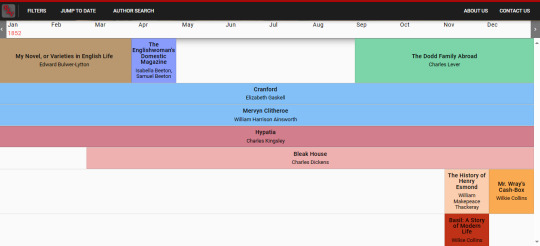
It shows 12 months at a time, and using the left and right arrows will move you back or forward by a month. You can use the 'Jump To Date' function to navigate to a different twelve-month period. Or you can use the 'Author Search' function to navigate to particular works if you know the author's name.
In the above screenshot of the timeline, which shows the period January to December 1852, there are several works shown, including:
ongoing serialised works which had at least one installment published prior to 1852;
works which began serialisation during 1852;
works published in three-volume format during 1852;
other works published during 1852
Details about each work:
You can click on the bar that represents a book's publication to get a drop-down that provides information about that book, its publication, and links to help you read the relevant serial parts.
Here's what happens if you click on Elizabeth Gaskell's Cranford:

On the left of the drop-down, there's some general information about the work, its publication history, and how to use the links.
On the right, there's information and links to help you experience the book in its serial parts: it separates out the parts, indicates the month and the year they were published, and what chapters of the work were published in that part. It also provides notes on each part where helpful. There is a scroll-bar at the right of the drop-down, so you can scroll down to the later installments of the work.
[I chose Cranford as an example as it helps demonstrate the value of the Reading Like a Victorian website... From what I understand, Gaskell initially wrote 'Our Society at Cranford' as a standalone piece of short fiction, but was encouraged to write more, so further pieces also set in the fictional town of Cranford were published intermittently in the same magazine over the next year or so. While a particularly dedicated Gaskell fan who wanted to 'read along' with Cranford following the original publication could probably search 1.5-years-worth of a weekly magazine to find the 9 issues which included the material which would later be published as Cranford, the Reading Like a Victorian website has already done that work for them... and also for anyone else who might be interested, but not quite that interested.]
The links
You can then click on an individual chapter to get links to various places to read it online:

When available / where possible, the website tends to include links to:
a facsimile copy of either the relevant serial part in the original publication, or in an 'annual' or similar volume collecting together the content of that publication, or a volume-form edition of that work if the work was not published serially or if facsimile copies of the original serialised publication are not available. [Most of the facsimiles are hosted by either the Internet Archive or the Hathi Trust Digital Library, but some are hosted as part of smaller, more specific collections, such as - in the case of Cranford - Dickens Journals Online which provides online access to the journals/magazines edited by Charles Dickens);
the text, usually on Project Gutenberg (this is usually the volume-form text, so the exact content and chapter breaks and so on may be different than originally published in serial parts; the Reading Like A Victorian website will generally explain when this is the case);
audio recordings, usually volunteer recordings from Librivox (again, the recordings are usually based on the volume-form text, so the exact content and chapter breaks and so on may be slightly different than originally published in the serial parts).
So yeah, I just thought it was a cool website and worth sharing. I believe the website is already used as a resource by some University courses and for academic research, but it can also be used by book clubs and to aid personal reading, etc. I'm using it to inform a personal reading project for 2024-26 where I follow along with six or seven novels serialised in 1864-66.
To save a scroll to the top, here's the link to the RLV website again: Reading Like A Victorian (osu.edu)
[If you want to join an already-planned read-along based on the original serialisation schedule, @dickensdaily will be doing Charles Dickens's historical novel Barnaby Rudge: A Tale of the Riots of 'Eighty from mid-February 2024 to late-November 2024, to follow along with the original weekly publication of the novel in Master Humphreys Clock from February 1841 to November 1841. I personally found Barnaby Rudge a really engaging, thought-provoking read, and I'm really looking forward to reading it again. (Anyone with particular triggers or other reasons to be wary of the content or language used in older books may find it helpful to look up content warnings for the book before making a decision to read it.)]
#reading like a victorian#victorian literature#victorian era#serial reading#serialisation#digital humanities#tumblr book club
265 notes
·
View notes
Text
Danny Phantom, The Show:
geeky kid gets super powers from his parents' weird inventions! now he has to fight a rogue gallery of ghosts... but uh-oh! he still has to keep his grades up, deal with his embarrassing parents, and navigate girl troubles! rap theme song!
Danny Phantom, the Fandom, After 19 Years of Fermentation:
a child dies. but not quite. the inherent tension between life and death. the obsession of the dead for faded remnants of the living. warped green shadows on the walls of a dark laboratory. having to hide your true nature from those who should be your greatest allies. the fear of the monster you could become if you let yourself. being a ghost as a metaphor for the trans experience. a cold breath on the back of your neck in the dead of the night. rap theme song!
#also wes is there#danny phantom#okay okay i'm exagerrating on both points obviously#it's been a LONG time since i watched the original tv show#but of course it had elements of these deeper themes and that's why the fandom's lasted so long#but it was a mid 2000s cartoon when serialised storytelling in western animation was still in its infancy#the fandom has spent a long time leaning into the story lines and themes that never would have flown then
16K notes
·
View notes
Text
I'VE been thinking about doing a chapter serialisation for my new book. It would be completely free of course, but I want to know what you guys thought.
#writing#fiction#creative writing#author#writerblr#writing community#my writing#writer#writers of tumblr#indie author#polls#my polls#tumblr polls#serialisation#chapter by chapter
0 notes
Text
Small boys with limp dicks gay How To Fuck Your Dad Little Austin has
Marlene Estrada Tinder Thot
Widowmaker making the most of the lovely weather
Adult xxx movies straight hispanic men gay Sucking Dick And Getting
Sexy Webcam Teen
Sexy wild tighty teens got banged at a college party
Drunk girl was fucked by a young step brother in tight pussy
Black lesbians grinding pussies together and fingering
Hot barely legal Gracie Glam deep throat fellatio
Big Breasted Step Mom Seduces Son - Akoni Pule
#crowl#gaylatino#Bucuresti#demanding#reist#thralldom#serialisation#opsistype#dilemmas#screechy#lumpfishes#carcassing#inkosi#rodder#tunnland#puttying#Minotola#detonator#Tashnagist#git
0 notes
Text

“I know writers who use subtext and they’re all cowards”
-Hideo ‘creator of characters fatman, heartman and revolver ocelot’ Kojima
#196#hideo kojima#metal gear solid#death stranding#tbf in my serialised writing im planning and concoting which aims to emulate#the style of battle manga this is how most of thecharacters will be named
2K notes
·
View notes
Text
Intention, serialisation and writing advice?
Intention, serialisation and writing advice?
220905
I have this fairly standard piece of writing advice that I give to people struggling with longer projects. The advice goes thus: make a note of what you want to change earlier in the story and then continue writing as if you’ve made that change. It’s wildly common to get stuck on any kind of creative project and, for me, this technique works when I get stuck on a longer writing…
View On WordPress
#musings about the blog#Postiing#posting about writing#rambling about writing#serialisation#Writing#writing advice
1 note
·
View note
Photo
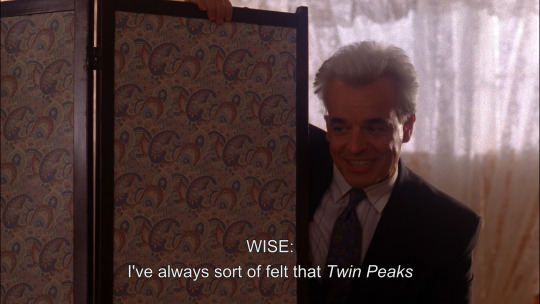
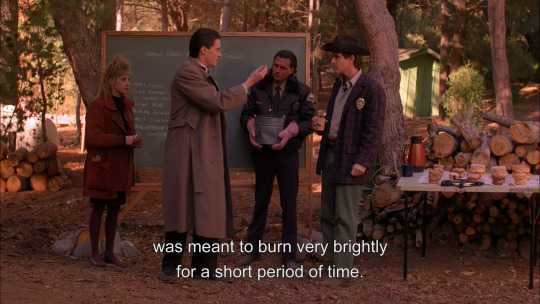
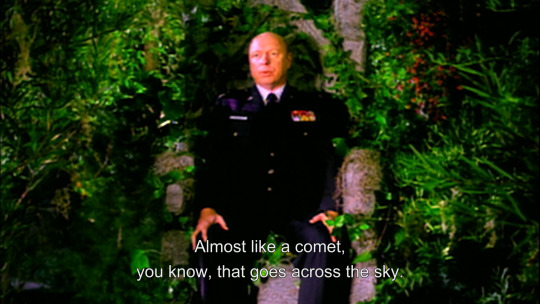
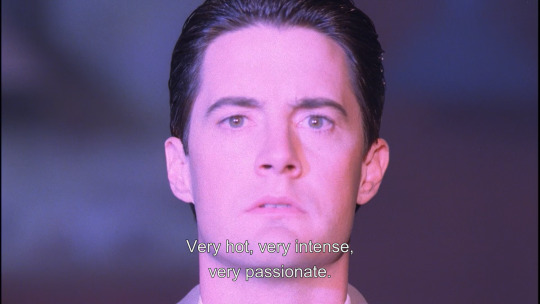
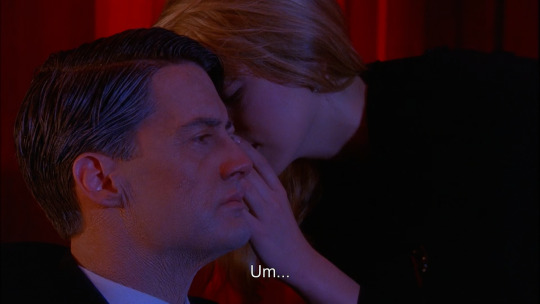
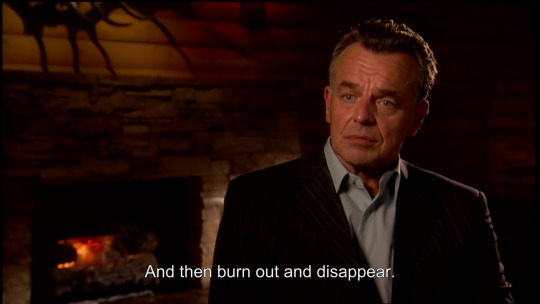
Ray Wise in Secrets From Another Place: Creating Twin Peaks
#almost like a comet <333#twin peaks#tv#*#i watched this last night and then i cried for an hour.#the way they all speak about the show's decline is so heartbreaking honestly#idk man. every once in a while i just get so overwhelmed by the love i have for twin peaks i can't even tell you#where would we (21st century serialised television) be without her....
664 notes
·
View notes
Text

YESSS BIG FINISH PODCAST COMING IN MARCH!!! 🥳🥳🥳
And the first story they're releasing is Death and the Queen aka one of my favourite Ten and Donna stories!!!! And everyone can listen to it for free!!! SO EXCITED
#also yay colin baker!!!!!#EVERYONE PLEASE LISTEN TO IT#i will for sure listen to it again when it comes out hehehe#i hope one day they'll serialise gallifrey 👀#personal
97 notes
·
View notes
Text
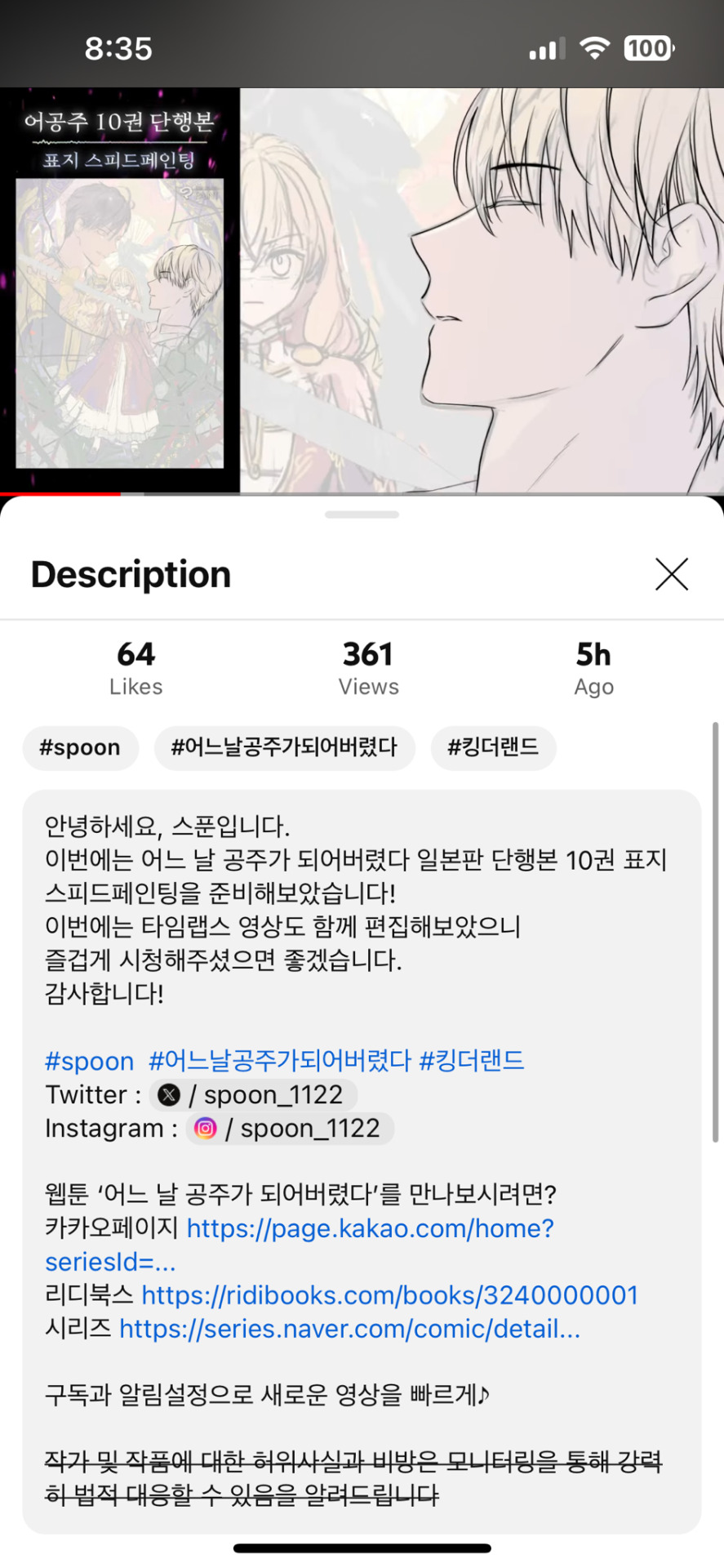
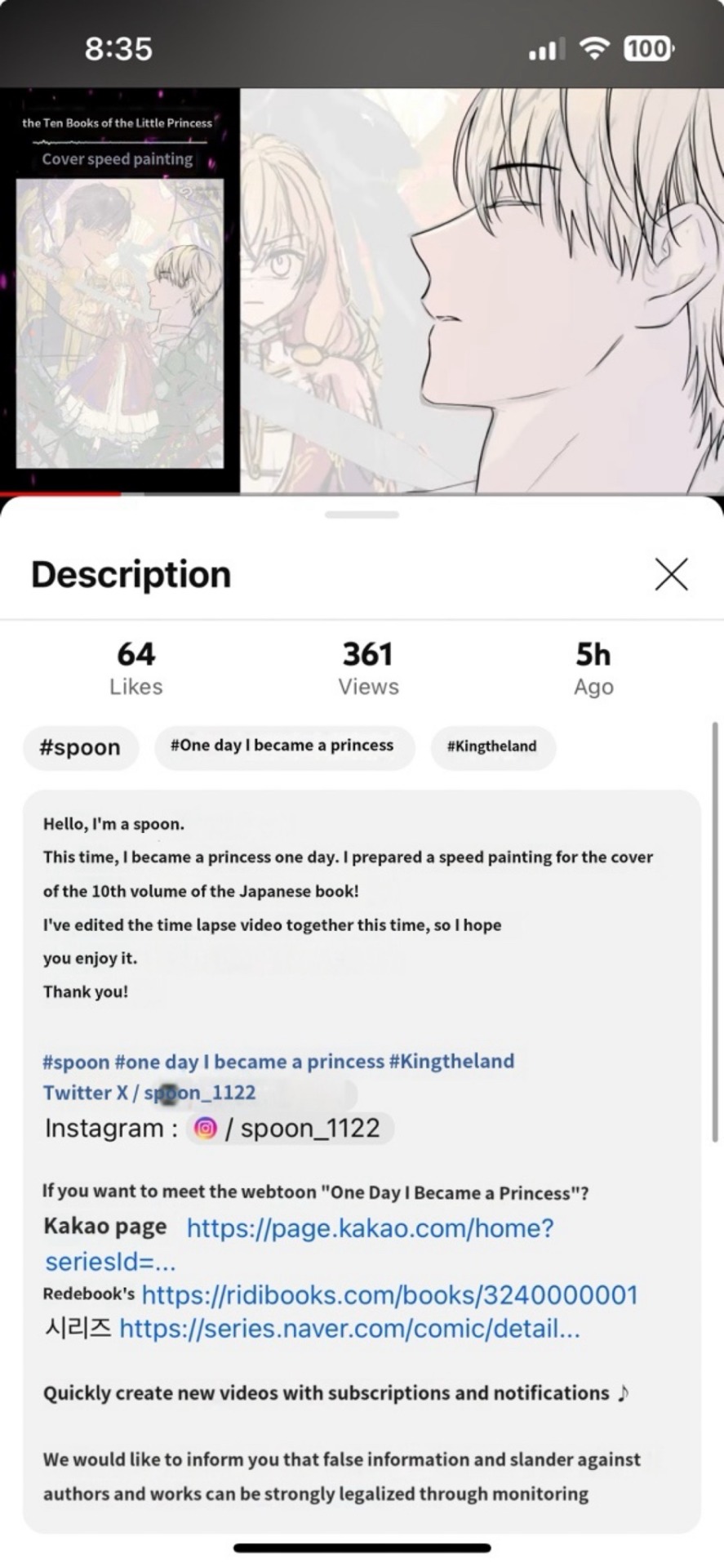
I thought… this was the side story announcement….
Just like for the Japanese 8th volume of WMMAP, Spoon has illustrated a new cover for the 10th volume!
I’m just hoping the image will be clearer this time around bc Bookwalker had a very bad image resolution for the 8th volume 💀
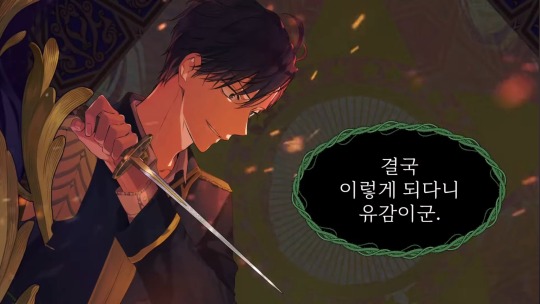
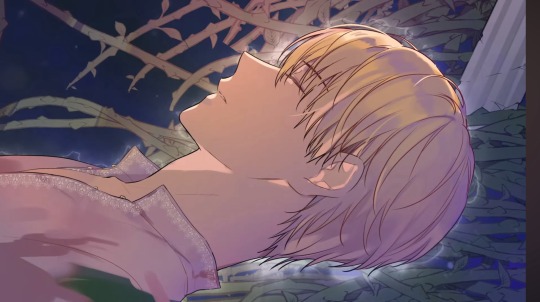
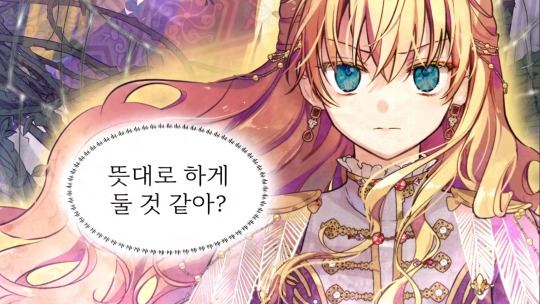
“What a shame that you’ll end up like this.”
“You think I’ll let you have your way?”
#who made me a princess#wmmap#anyways….#athanasia de alger obelia#claude de alger obelia#Anastasius de Alger obelia#just woke up and i was like WHY DID NO ONE TELL ME#okay going back to sleep damn 💀#mood RUINED#Japanese ver#spoon’s YouTube channel#that statue in the background is so Jennette coded#if spoon had dropped this cover back when the manhwa was being serialised we would have had the craziest theories#‘JENNETTE DIES THIS TIME AROUND?’#spoon killing off Jennette LMAOOO
71 notes
·
View notes
Text

I don't think this is it?
Comics being messy as fuck or terrible Marvel movies going without end may be 'bad' and cash graby, but there's a significant difference between this kind of 'bad' and 'is trying to convince you to gamble'.
#amazing how 'indefinite serialised media' is framed in this sort of vauge way so i have to sort of guess this is what they mean?#Because like some indefinitely serialised stuff could be read as like One Piece?
132 notes
·
View notes
Text
To celebrate the beginning of @dickensdaily, a substack which sends out Dickens Novels in line with their original serialisation schedule, beginning with Great Expectations (serialised December 1860 to August 1861), here's:
Reasons to read Great Expectations
I've done my best to keep this spoiler-free, so you should be able to read without ruining anything for yourself.
The characters
PIP: a Perfectly Imperfect Protagonist
Himbo With A Hammer
Local Woman Knows How To Hold A Grudge
Out Of Your League
Cinnamon Roll with Fruit (slightly squashed)
...and more...
Queer Themes
Obviously this is very much a matter of interpretation, but Great Expectations has room for readings around:
Homosociality / homoromanticism / homoeroticism
Compulsory (hetro-)sexuality
Non-traditional families and domestic arrangements
Other Themes
Social class (especially: "What makes a gentleman?")
Trauma
Child and domestic abuse (physical and emotional)
The law (criminality, punishment, money, property, etc)
...and more...
Genres
Great Expectations fits into several genres. [Descriptions below drawn from wikipedia.]
'Coming of Age' story / Bildungsroman (a genre that focuses on the psychological and/or moral growth of a protagonist from childhood to adulthood)
Sensation novel (a genre which reached peak popularity in the 1860-70s, and which 'has been variously defined as a "novel-with-a-secret" and which combines "romance and realism"')
elements of the social novel (a "work of fiction in which a prevailing social problem, such as gender, race, or class prejudice, is dramatized through its effect on the characters of a novel".)
elements of the Gothic (a 'loose literary genre of fear and haunting', often including 'the intrusion of the past upon the present')
One of Dickens' best novels
Great Expectations was Dickens' second-to-last completed novel, so he was at the top of his game at this point.
According to wikipedia, "in the 21st century, the novel retains good ratings among literary critics."
It's also popular with the general public. In 2003, the BBC surveyed 750,000 people in 'The Big Read' to find the UK's "best-loved novel", and Great Expectations ranked 17th.
The first Dickens novel I read, it remains my favourite Dickens, both as a story and as a work of art.
One of his most accessible novels
If you haven't read any Dickens before (or have, but struggled), Great Expectations may be the place to start.
It's one of his shorter novels, so less intimidating and easier to finish than many other Dickens books.
It's also in first person which mitigates some of the things people often struggle with in Dickens' writing:
With some Dickens novels, it can be difficult to tell what the 'main story' is because there are so many intersecting plotlines. In Great Expectations, we're essentially reading Pip's memoirs from his childhood to his young-adulthood, so we can understand all the other stories through Pip's story.
Likewise, we meet all the other characters through Pip, so the feeling of "who are all these people???" I often get from Dickens novels is reduced. We know characters through their relationship to Pip.
Dicken's minor characters are often caricatures, with features of their personality, appearance or manner exaggerated to create a comic or grotesque effect. Dickens likely did this to help readers more easily recall characters over the stretched-out timeframe of serial publication, but it can be jarring to modern readers. Because Great Expectations is from Pip's point of view, his subjectivity frames the caricatures; it feels natural that they lack complexity because Pip doesn't know the inner world of everyone he passes on the street any more than you or I do.
Dickens can often go on tangents/'rants' about society and social injustice at the time he was writing. This was a force for social change at the time, but can be baffling and/or boring to modern readers. Because Great Expectations is in the first person, when these 'rants' appear they feel more like 'my friend Pip grumbles about things that affect his life and the people around him' so are easier to engage with.
Bonus: a Choice of Endings...
Dickens originally wrote one ending for the novel, and then - following conversation with another novelist - changed it ahead of publication. This means that there are two endings of the novel to choose from, which is an interest interactive element.
#i just love this book so much#the other thing i love about it i haven't really mentioned here is that#it just feels very psychologically *real*#if that makes sense#great expectations#dickens daily#charles dickens#tumblr book club#serialisation#reading
28 notes
·
View notes
Text

Oh my god Fujiwara Hiro's new one shot Kyousou Silent will be set in the 1920s and feature ambitious young stars in the world of silent cinema.
KLSADJLAKDJAKDJLAKDJAL
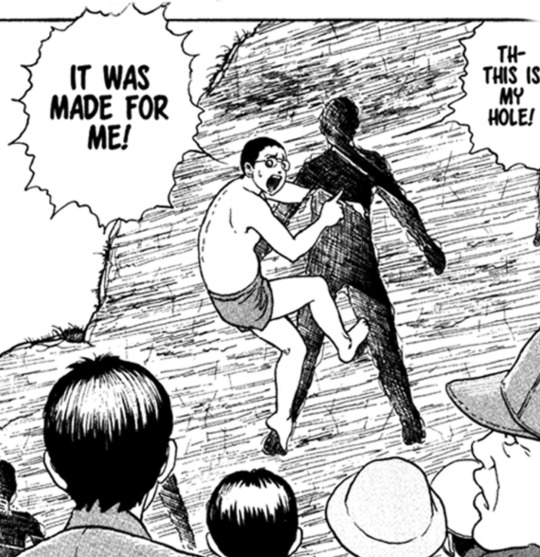
#kyousou silent#fujiwara hiro#hiro fujiwara#shoujo manga#shoujo#manga news#lala#god i would do anything to have this serialised#i cannot begin express what an incredible overlap of interests this is for me#i need to hook this to my veins immediately upon release
33 notes
·
View notes
Text
Just finished "Person of Interest". The way a show that started off as a run of the mill crime procedural with the premise of "what if Batman was split into Bruce Wayne and Batman?" who stopped crime based on a background mcguffin turned into the best, smartest sci-fi show I've ever seen, with the some of the best written character arcs I've ever seen, with some of the most nuanced "villains" I've ever seen, with the most powerful, flawed women I've ever seen (whose least defining traits are that they're "powerful flawed women"), set to the most incredible and fitting OST and soundtrack you could hope to hear, capped off by one of the best endings I've ever seen is nothing short of genius. I'll be watching this show on repeat forever

#person of interest#And I've seen a LOT of sci-fi#I was sobbing by the end of the finale#Not because of sadness but because everybody got a fitting ending#Like incredible#I read an interview with the creators where they basically admitted#That CBS wanted a crime procedural only so that's what they made but then snuck in a serialised sci-fi show and conned them and like#That's so sexy#They made TWO warring AI's compelling main characters ffs
13 notes
·
View notes
Photo

[above quote by chris odinson hemsworth about thor ragnarok]
stuff that happens in our LOKI discord server when we remember bullshit like that exists:

#in defense of loki#relationship dynamics in serialised fiction#loki deserves better#thor is the worst brother#2011-2013 brodinson supremacy#chris wanting thor to be more like him was the worst self-own
94 notes
·
View notes
Text




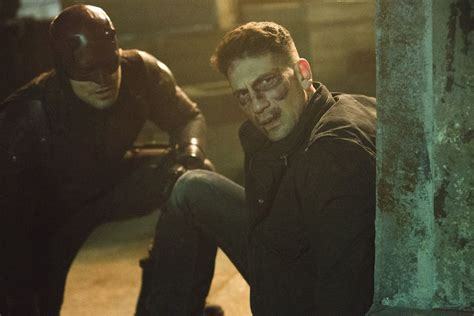



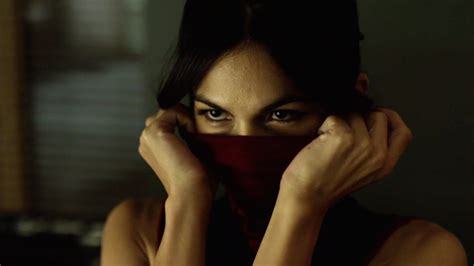

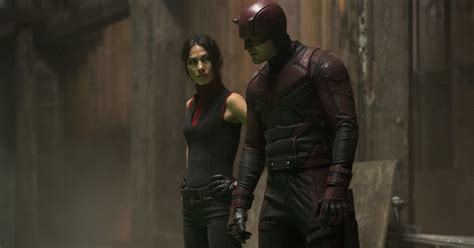
DEFENDERS' SAGA series 3
DAREDEVIL series 2: Netflix/Disney+
Punisher & Elektra joining threaten to imbalance & over-stuff the series, buuut Frank Castle makes for a wonderful foil & counterpoint to Matt's DD, & Elektra pulls DD's morals & ethics to stretching-point. Reyes is a wonderful thorn for Nelson & Murdoch, & Karen is just mint at research & unearthing backstory & keeping the boys & the firm together. tremendous serialised drama, with cracking development of characters, mature plots & beats & challenges... just THE BEST Marvel character to dramatise & develop for mature audiences. & the lynchpin to the Defenders' moderate success. Jessica Jones & Luke Cage make for great team-mates, but DD is the fulcrum.
#defenders' saga#daredevil#live action dramatisation#netflix series#disney+#marvel serialised drama#hell's kitchen#devil of hell's kitchen#punisher#frank castle#elektra#roxxon
11 notes
·
View notes
Text
lol, whole season drops are a fandom killer
#whole season drops + serialisation murders fandoms#i mean the former does whatever the type but Both is oof
7 notes
·
View notes